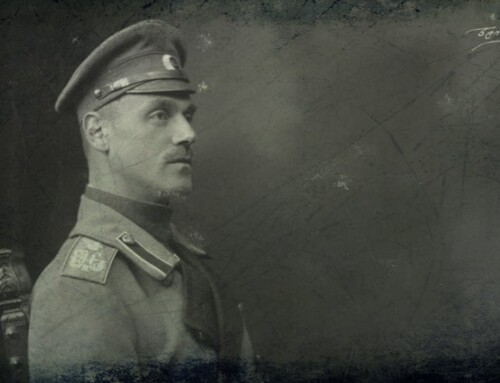When I was a boy, I adored male television characters who were strong and assertive: James West in “The Wild, Wild West,” Steve Austin in “The Six Million Dollar Man,” and Lieutenant Starbuck in “Battlestar Galactica.” In my mind, they were everything I was not. If men combined these attributes with fatherhood – I found them incredibly attractive; examples of this type were: John Robinson from “Lost in Space,” Porter Ricks from “Flipper,” and Charles Ingalls from “Little House on the Prairie.” Although Charles Ingalls had no natural sons of his own, he later adopts Albert, the plotlines on the show often revolved around a dysfunctional father/son relationship: a widowed alcoholic man who abuses his son; a bullied boy who embarrasses his father; and an aggressively masculine dad who forces his weaker son into playing football. For the most part, there is a resolution in these conflicts when other men intervene and the father softens his stance towards the boy. Michael Landon created a near perfect world, where no little boy is lonely or neglected. Not surprisingly, Landon himself grew up in a volatile home where his mentally unstable mother repeatedly attempted suicide. Like a number of men who later come-out as gay, Landon embraced the idea of a perfect family – while often falling far short of perfection in his personal life.
Twenty years after the failed big-screen relaunch of “Lost in Space,” 20th Century Fox has released on DVD an updated adaptation of the series. Like the 1998 film version, the series explores the distant relationship between John Robinson (perfectly cast with English actor Toby Stephens) and his only son Will. In the original 1965-1968 series, this conflict is almost non-existent. But as in the original series, in the new version, Will is portrayed as a smallish, super-smart boy. In the new version, he is also awkward, distant from his father, and closer to his highly-intelligent scientist mother and two older sisters. From my own experience, I grew-up in a similar situation as did most of my “gay” male friends. In this sense, Will Robinson is pre-homosexual. Richard Isay, a psychiatrist, psychoanalyst, and gay-rights advocate, who was instrumental in changing the way the mental health field approached the LGBT community, had to admit that:
The majority of gay men, unlike heterosexual men who come for treatment, report that their fathers were distant during their childhood and that they lacked any attachment to them. Reports vary from “my father was never around, he was too busy with his job,” to “he was victimized by my mother, who was always the boss in the family,” to that of the abusive, unapproachable father.
In the new series, Will’s distance from his father is clearly evident from the beginning. First, in several flashbacks to the Robinson’s life before they left Earth, we learn that John Robinson has been largely absent from the family – repeatedly taking a succession of military assignments that kept him far away from home. Once the family is lost in space, right away, we see the overly aggressive and highly masculine John trying to somehow instantaneously bond with his son. John attempts to push Will into a rather dangerous endeavor – trying to “make a man” out of him. Will’s mother, Maureen Robinson (Molly Parker), immediately steps in to protect her son. In the meantime, Will begins an intense friendship with an alien robot. Though the robot is genderless, it is also somehow hyper-male: with its enormous frame and metal skeletal structure that seems to mimic bulging medieval armor. Here, is an extreme example of the hurt and alienated boy, overly-protected by his mother, idolizing the caricaturized symbol of masculinity. In gay male culture, such symbols are everywhere – from Tom of Finland to gay porn. This sort of foster-fatherhood leaves Will, and other vulnerable young men, open to manipulation; in this series, by the constantly scheming Dr. Smith. Will is hurt and isolated /naive and trusting – open to suggestion.
The dysfunctional father-son dynamic in the new “Lost in Space” is combined with a barely intact relationship between John and Maureen; in the course of the series, we learn that Maureen wanted to divorce John. In their personal struggle with each other, the children are caught in the middle – especially the youngest: Will. When John actually takes an interest in the boy, awkwardly trying to repair the mistakes he made in the past, Maureen doesn’t let him forget those mistakes – nor is she willing to forgive him. The easing of the tension between the two of them begins to slightly dissipate when the male-female dichotomy is made more evident during the struggle to survive. Once there is a catastrophic breakdown in technology, biological gender roles, specifically the masculine, are immediately reasserted. Despite her intellect, which previously proved instrumental to the survival of the family, John must perform physical feats of strength and courage in order to ensure their safety. Not that Maureen is in any respect a weakling, but her accomplishments often require mental endurance rather than brute strength. However, John is not simply a man around the house – who stereotypically is required to open jars and kill spiders. They are both at their best when they work together and the peculiar aptitudes, specific to each gender, are able to manifest themselves. Edith Stein (later – St. Benedicta of the Cross) wrote:
I am convinced that the species humanity embraces the double species man and woman; that the essence of the complete human being is characterized by this duality…
What does she mean? I think Stein was saying is that there is a biological, psychological, and even spiritual duality in human beings that manifests in the two sexes. Yet, when the two become one – as takes place in the Sacrament of Marriage – a complementarity, and a sort of completeness, is achieved. In the case of the Robinson family – John’s sometimes impulsive brutishness is tempered, and Maureen’s controlling overprotectiveness and tense efficiency is alleviated. Untethered from each other, masculinity can a have propensity towards reckless impulsivity and fascism, while the female towards hyper-emotionalism and smothering possessiveness as evidenced in the high rates of promiscuity in the gay male community and the preponderance of domestic violence among lesbians.
Stein goes on to describe how in Our Lord Jesus Christ – unity is personified in one man:
Christ embodies the ideal of human perfection: in Him all bias and defects are removed, and the masculine and feminine virtues are united and their weaknesses redeemed; therefore, His true followers will be progressively exalted over their natural limitations. That is why we see in holy men a tenderness and a truly maternal solicitude for the souls entrusted to them while in holy women there is manly boldness, proficiency, and determination.
In the new “Lost in Space,” as became clearly evident throughout the West during the 20th century, traditional gender roles within the family became increasingly confused. As men stepped back from the family, preoccupied with climbing the corporate ladder, imprisoned within a car during long commutes, and exhausted at the end of the day due to the industrial revolution which placed men as a cog in the machinery of progress – children (including boys) were left almost solely in the company of their mothers and other women. This process reached an apogee in the late-20th century with the rise of the soccer-mom, and the relegation of men, sequestered in their juvenile man-caves, as just another child in need of female micro-management. But like John, men let this happen – they emotionally and physically checked-out. Maureen Robinson is such a woman, but she isn’t happy. She can’t do it all. And the children, especially Will, feign a false sort of complacency, but in reality, they are deeply affected by the chilly truce between their parents. And therein much of the problem lies – neither John nor Maureen have truly expressed their anger and disappointment with the other. Like a lot of men, John’s approach to the issue is straight-forward and well-intentioned, but largely dispassionate. He seems to think: I avoided my family, but now I am here – everything will be okay. Only, Maureen needs to be convinced by tangible actions. The first major leap forward that John takes is with Will. Sensing that perhaps the robot is replacing him as a sort of foster-father, John takes Will on a hike (purposefully without Maureen) in order to teach his son a lesson about his responsibility for the robot. For probably the first time in his life, Will has done something with his father. Consequently, his attachment to the robot is lessened. In addition, Maureen repeatedly witnesses John risking his life to save his family. This display of masculine self-sacrifice, took a slightly different form in seasons 1 – 3 of the 1970s sitcom “Good Times.” Instead of in outer-space, James Evans (expertly portrayed by John Amos), the patriarch of a poor working-class family in Chicago, works tirelessly and returns home to his meager apartment in an inner-city project. Yet, he always managed to spend his every free moment with his children and was highly involved in their daily lives – when he isn’t at work, he is at home. He doesn’t collapse in front of the TV.
As parents devoted more and more time to their careers and working, there was an ongoing myth that “quality time” spent with children was more important than “quantity time.” With the rise of childhood involvement in drugs, pornography, and a reliance upon technology as an instant baby-sitter, James Evans proved that a difficult social environment can be overcome by a present and involved father. He is a modern-day Bob Cratchit – enduring hardship and sacrificing his own life for his family.
In the new “Lost in Space,” two pivotal moments take place that literally force John and Maureen to be together and talk: when they are trapped in the wreckage of crashed space-ship, and when their vehicle is submerged in a tar pit. During incredibly stressful situations, John and Maureen tend to combine their efforts and bring out the best in each other – in some couples, the opposite is true. In particular, when they are trapped in the tar pit, they are able to forgive each other – mainly because John is finally willing to be vulnerable. As Edith Stein believed, the ideal man is one who can be masculine and strong, but also compassionate and tender. Maureen has seen the new gentleness, combined with certitude, in John’s interaction with their son. This does not mean that John is subservient to Maureen, or that he has become wimpy, but that each is able to reappreciate what initially attracted the one to the other. By the end of the season, the emotional and physical duality between John and Maureen is played out to the extreme; when John volunteers (once again) to sacrifice his own life for the welfare and ultimate survival of his family. While Maureen tries to remain detached and logical, causing concern in the children, she eventually (also) becomes vulnerable and expresses her love for John. Together, man and woman, they can accomplish almost anything.
Addendum: In many ways, Roy McBride (played by Brad Pitt) in the film “Ad Astra” is Will Robinson as an adult – if John had never reentered his life. Like Maureen Robinson, in the new “Lost in Space,” he is highly efficient, but unemotional. Will was on his way to this level of detachment when he is most absorbed with the robot – who presents the quintessence of cold composure. Abandoned by his self-involved astronaut father when he was a boy, Roy is unable to give or accept love from his wife. Therefore, he chooses work as his sole outlet. When his long-lost father suddenly rematerializes in his life, albeit at the other end of the solar system, he risks everything to just see him again – to find out if his father ever loved him.
Postscript: You do not need to be a member of Netflix nor support Netflix to watch the new series “Lost in Space:” 20th Century Fox has released the first season on DVD.





